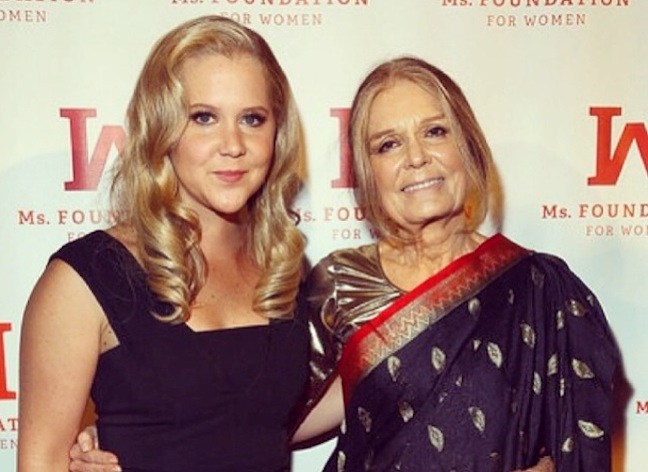17 July 2016, Durban, South Africa
I'm really very, very pleased to be here today and I'm very, very pleased that this has taken place. This is an issue which should have a greater prominence in this conference.
We know that the central issue in this epidemic- we know medically and socially, what to do. We know what to do. We know that HIV can be medically managed. I've been on antiretrovirals for almost 19 years. I'm fitter and healthier than I was in 1997. We've got the world's biggest antiretroviral treatment program publicly provided in South Africa. We know that if we can get to enough people, the algorithm showed, if we can get everyone tested and everyone treated, in South Africa, we've committed from September to two important things: Which is to treat everyone with HIV and secondly, as importantly, to give sex workers pre-exposure prophylaxis. Are there any sex workers here?
Audience member: Yes!
Well done, ma'am!
I'm so proud of you. And I'm proud of our country. I'm proud of our country, that we're going to be providing people whose work is one of the most difficult and dangerous, and despised occupations, and one that deserves our support and our respect and our love with pre-exposure prophylaxis.
All of that we know. We even know how we can try to persuade people. Prevention is more difficult. We don't know what to do about prevention, ladies and gentlemen. I always refer to the fact that by 196 1- 10 year after Sir Richard Doll published his ground breaking articles inThe Lancet and the British Journal of Medicine about the link between cancer and cardiopulmonary disease and smoking - by the end of that decade, the governments of North America and Western Europe had accepted that smoking causes cancer. Smoking in the United States - 44%. Where is smoking in the United States now, anyone tell me?
Eighteen percent
So don't tell me ... Don't come to Africa and say, "Why don't those girls in the townships just use condoms? 'Cause we're talking about health seeking behaviour, we're talking about health seeking choices. So, I accept prevention from the broad mind that we know how to manage it, but medically and otherwise, physiologically, virologically, we know exactly what to do.
The biggest problem is stigma. Stigma, stigma, stigma, stigma. Stigma remains a barrier to prevention, it remains a barrier to behaviour change, it remains a barrier to people accessing treatment. Stigma is causing deaths, we know that. Because people are too scared to test. We, in this country, still have between 150,000 and 180,000 deaths from HIV every year, linked often with TB, also an intractably hard disease, much more medically difficult to deal with than HIV. But the cause of the undiagnosed cases of HIV, the cause of the untreated cases of AIDS is stigma.
Beyond Blame has offered today a rare and a crucial opportunity to build the movement that tackles that stigma frontally. Back in 2008, on the final day of the International AIDS Conference in Mexico, I called for a sustained and vocal campaign against HIV criminaliation. Along with many other activists, I hoped that that conference eight years ago would result in a major international resistance movement to misguided criminallaws and prosecution. And I want to credit Edwin J. Bernard, have you got credit today, Edwin? Come and stand in the front. Have you got credit?
Edwin Bernard:
Thank you.
The difference between me and activists like Edwin is that they don't get the judicial salary and the free car. So you take all the credit, Edwin. I really, really honestly mean that. And you working with us, you, ladies and gentlemen, are working with us 24 hours a day, 7 days a week. I bring honour and credit to you for doing that in difficult circumstances.
The work of HIV Justice Worldwide, who put together this conference, shows how far we've come. The fact that you had such a successful meeting is itself, a signal of our success.
The movement against these laws and prosecutions, which started a decade ago, is really gaining strength and some heartening outcomes. As you've heard today, laws are being repealed, they've be enmodernised, they've been struck down. From Kenya to Switzerland, from the state of Victoria in Australia, to the state of Colorado in the United States.
I've been living with HIV for over 30 years, ladies and gentlemen. It is especially fitting for me to be able to note that much of the necessary advocacy for this, has been undertaken by civil society. Can I ask, how many government officials are there in the room today? Put up your hands. There, we've outed you, sir!
We're very proud of you. One government official; we pay honour to you. Thank you for coming. And you too, ma'am. Three. Yep, three government officials. The fact is, ladies and gentlemen, you are civil society activists ... every single major breakthrough for treatment, for governmental action against criminal laws, against stigma, has been driven by civil society activists.
Since the beginning of the HIV epidemic 35 long years ago, policy makers and politicians had been under sore temptation to punish us for the fact that we have HIV. Sometimes they have been propelled by public opinion. Sometimes they themselves have not justly propelled public opinion. But they've tried to find, in punitive approaches, a quick solution.
There's no quick solution, ladies and gentlemen. And one way has been this particularly hyper stigmatising way of HIV criminalisation: criminal laws against people living with HIV who don't declare that they have HIV, or to make potential or perceived exposure or transmission that occurs, when it is not deliberate, criminal offences.
Most of these laws are appallingly broad. I've been working this week with Section 79 of the Zimbabwe Criminal Code. Where are our Zimbabwean brothers and sisters?
Is there anyone here who was involved in the case of Pitty Mpofu? I'll come to it in a moment. But appallingly broad. If you do anything that puts anyone at risk of HIV exposure, you are guilty of deliberate transmission of HIV. We've heard today on the panel, I believe, very moving accounts, deeply moving accounts about people who have survived the hyper stigmatsing assault of these laws. We also know a very helpful fact, ladies and gentlemen, that scientific evidence about how HIV is transmitted and how low the risk of transmitting the virus is, is the key way.
People come to South Africa and they speak about President Mbeki, who disregarded evidence, who would not accept the overwhelming scientific proof that HIV caused AIDS, and much more importantly, that if AIDS was virally caused, if its aetiology was viral, that you could treat it. And they look condescendingly at President Mbeki - but Western governments all over, Australia, North America and the rest of Africa, African governments, in equal measure to President Mbeki, are ignoring scientific evidence.
The last 20 years has seen a massive shift in the management of HIV. It is now completely medically manageable, as I've said. I was dying of AIDS 19 years ago in November 1997. I had access to antiretroviral treatment.
Nineteen years later, as I've said, I'm stronger than I was as a younger man then. Despite thisprogress, despite the progress in prevention, treatment, and care, that overwhelming issue remains, which is stigma. And I want to mention a difficult issue and an important issue, which is the internalised form of stigma.
I'm glad that there is going to be quite a lot of attention here. Ladies and gentlemen, internalised stigma is when we as people with HIV or at risk of it, take deeply within,to the recesses of our own consciousness and subconsciousness, the hatred, the ostracism, the fear, the rejection, the prejudice, the discrimination of the external world, and that often is a causative effect when people don't get treatment, when they don't get testing. It's a hard phenomenon to describe. It's hard to act against but its powerful effect on our epidemic must be recognised.
The enactment and enforcement of laws that criminalise HIV, even the threat of their enforcement, fuels the fires of stigma. It fuels the fires of internalised stigma. It reinforces the idea, both externally and internally of those with HIV and at risk of it,that HIV is shameful, that it is a contamination, that it is disgraceful, that thosewho have it are criminals, that they're vectors for passing on the disease. And by reinforcing stigma, HIV criminalisation makes it much more difficult for those at risk of HIV to access testing and prevention. It makes it more difficult for them to talk openly about living with the virus and to be tested and to be treated and to be counselled to behavioural change. I know that I'm preaching to the converted here, but HIV criminalisation is profoundly bad policy. There is no evidence that it works. Instead, it sends out misleading and stigmatising messages. It undermines the remarkable scientific advances and proven public health strategies that we know are effective in dealing with this epidemic.
In 1997, the Chair of the Justice Portfolio Committee in South Africa's Parliament, Mr. Johnny de Lange , called for laws to criminalise HIV. Our epidemic was burgeoning. Treatment was not yet available except to the privileged few like me, who fell severely ill at the end of that year. And of course, you take the easy fix. You pass a law. You pass a law that targets those with HIV. Mr. De Lange was a powerful man. He steered a lot of laws through Parliament at that time, including our version of minimum sentencing laws, which are now being reconsidered in America but not yet reconsidered here. He steered unbailable offences laws through Parliament. He did a lot of legislative steering.
But very fortunately, the matter was referred to a committee of the South African Law Reform Commission, which was chaired at the time by Justice Ismail Mahomed. He asked me to chair the committee, and one of our projects was a project on the criminalisation of HIV. It's worth getting the report, ladies and gentlemen. I don't say this in vanity, because most of the work was done by a superb lawyer and researcher at the Law Reform Commission called Anna-Marie Havenga, so I claim no credit for the report. I claim credit for editing it and for steering it. But that report is worth downloading. It's a 200 - page report that exhaustively looks at all the options. It's 20 years old now, 18 years old, but we decided against criminalisation.
You know what was the pivotal breakthrough? We had a two-day conference where we called all the civil society organisations together in Pretoria to debate this issue. We called especially the organisations dealing with women and with children's rights. We called those who sought protection for women, who sought the prevention of paediatric HIV, and we realised by the end of the second day, we had a unanimous consensus that these laws were bad for women. They were bad for children. That those targeted by these laws are the women themselves, and it's been borne out. Many of the first prosecutions in Africa had been prosecutions of women. The first prosecution under Section 79 of the Zimbabwe Criminal Law Amendment Act, which I've mentioned before, was of a woman, when her partner went and laid a charge against her.
So we decided against it Ladies and gentlemen, I just want to be rude about Canada. Let me summarise. Where's Richard? It's so nice to be rude about Canada. Even though Richard [Elliot, Executive Director of the Canadian HIV/AIDS Legal Network] tried to make Canada sensible,
There's been a decision recently of the Zimbabwe Constitutional Court, a full panel of seven judges where they refused to declare this appalling law .... It's an appallingly broad and vague law. They said they're not going to rule it unconstitutional. And the premise is that everyone with HIV has got to disclose. I want to give you the quote. Paragraph 12 of the judgement:
“Public policy requires of a person with HIV that he make full disclosure to his intended partner, in order to afford that partner the opportunity to make an informed decision." Ladiesand gentleman, I ask why? Why? Why does someone with HIV, either who's on treatment or who's going to take appropriate prevention measures, have to disclose? That's the premise. And that - Richard Elliott, I won't make you stand - is the premise of[the] Mabior [decision].
Obviously it's shameful. Did I say shameful? A bad, bad, bad, bad, bad unanimous decision of the Canadian Supreme Court, which I equate with the judgement andthe reasoning in State vs Pitty Mpofu. Pitty Mpofu's challenge failed. And Mabior ... Mr. Mabior did not transmit HIV. He was on successful antiretroviral therapy. He did not disclose his HIV. He was found, in effect, guilty of rape, because he didn't disclose.
Richard, you argued the case; I honour you and the Canadian HIV/AIDS Legal Network for your valiant attempts. I was in Canada just before the case was argued. Was it 2012? And you were full of hope. You werefull of hope. We now know there's been a study released last week, which shows that 58,000 instances of serodiscordant intercourse have not led to a single transmission of HIV. That was known to the nine justices of the Supreme Court of Canada at the time, but the evidence has been mounting up even more incontrovertibly, since then.
Ladies and gentlemen, let me wrap up. I want to congratulate you for being at this conference today. I want you to feel energised. I want you to feel informed and empowered and energised to take out into this conference today the message of today's meeting. And when Edwin and I were debating what I should say, I wanted to add something to his suggestions for my speech. And what I wanted to add was the fact that we must not let our administrators and officials and politicians arrive at this conference. They arrive, ladies and gentleman, with cars. And they arrive with delegations. And they go back to their countries, 30 of them in Africa, with criminal laws that target us irrationally, unscientifically, stigma enhancingly, stigma magnifyingly.
We must not allow them that peace and comfort. We must challenge them.
We must take the message of this conference out of your meeting today into the halls, into the podiums, and into the individual meetings with those people. Find the ministers and the officials from the African countries that target. We have suffered no harm in this country, because we didn't stigmatise. We did the right thing.
Those countries must do the right thing. They must repeal those laws. And your energy today, your vision, andyour activism, will make sure that that happens. Thank you













